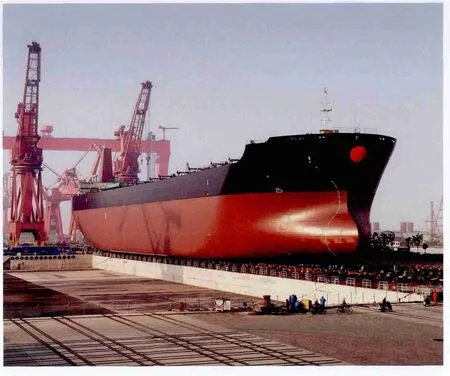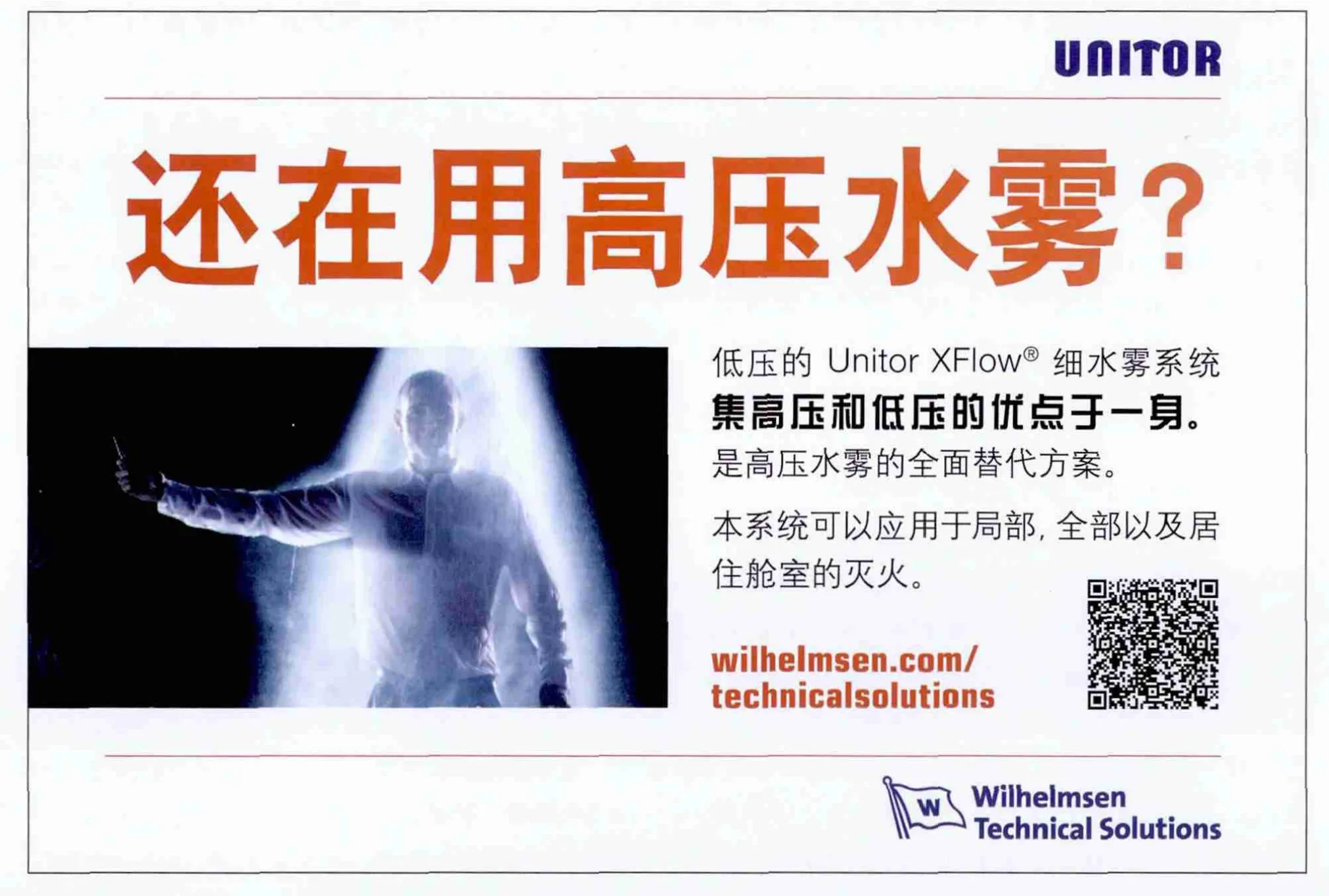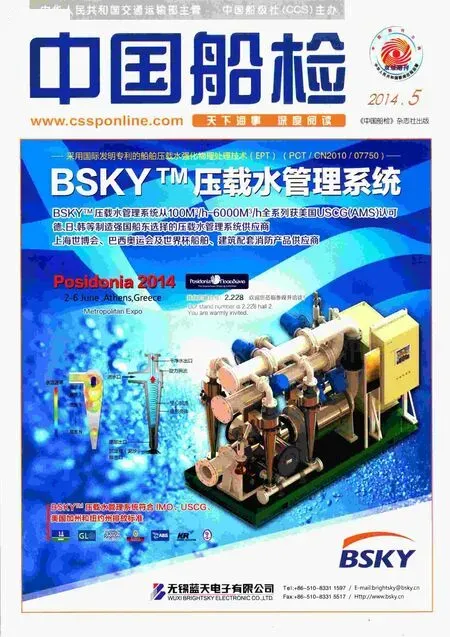塑造造船巨人的王道
2014-05-26杨培举
本刊记者 杨培举
塑造造船巨人的王道
本刊记者 杨培举
与其去刻意培育世界一流企业,不如营造好世界一流企业需要的土壤。
多年来,中国造船业在由大到强的道路上苦苦探索着、奋斗着,在经过了一段高速发展后,如今又面临艰难的转型之痛。在此,我们不妨尝试着转换一种思维方式去思考,或许会得到一个意想不到的结果。
世界级企业的土壤
目前,在国内造船市场,一场由政府调控和市场洗牌掀起的运动正在轰轰烈烈地进行着。此举主要目标是提高产业集中度和打造世界级造船强企,根据船舶工业“十二五”发展规划,前10家造船企业造船完工量占全国总量的70%以上,进入世界造船前十强企业达到5家以上。
从表面上看,这个目标似乎并不难实现。然而,当我们把视角聚焦在世界级强企问题上时会发现,国内存在不少争议。首先站出来的就是民营船企,他们的理由是国企和民企在一个不公平的环境下展开竞争,很多民企有能力做大做强,但却没有享受到国企的待遇。记者在近年来的采访调查中发现,此种观点很有市场。
然而,比这更尖锐的观点则是中国目前尚不完全具备培养世界级企业的土壤。改革开放30多年来,中国经济突飞猛进,GDP已超过日本成为全球第二大经济体,但却没有诞生一家像“苹果”这样的企业。有分析认为,中国缺乏“苹果”这种不靠政府扶持成为全球市值最大企业诞生的土壤。与“苹果”身份一样的中国民营企业,却没有“苹果”那么好的发展机会。2011年《财富》世界500强显示,中国有69家公司进入,成为全球第二。其中真正的民营企业只有深圳华为和江苏沙钢2家。平安保险、联想集团至多算是半民营企业。我们的上榜公司基本都是中字头的大国企,主要是靠国家政策扶持和市场垄断地位快速积聚起来的,而国外的大公司则是在自由市场竞争中慢慢积累,一步步发展强大起来的。国有企业对行业垄断的实质就是行政性垄断,这种垄断主要表现为限制竞争,延缓产业技术升级,降低社会资源配置效率,干扰市场竞争秩序等。这是中国无法产生顶尖公司的原因。
记者在采访中,感受最明显的是民营船厂对于市场公平的呼唤。一位不愿署名的船厂老总告诉记者,金融危机发生后,振兴扶持政策把精力更多地放在国有企业身上,致使国有资本在经济成长中的权重和获益率越来越高,而民营企业边缘化程度逐渐加剧。
另外,近几年,业界关于中国企业家精神的讨论也是此起彼伏。中国企业联合会研究室副主任胡迟认为,目前中国的社会精英更多的是参与分配财富,而不是创造财富,就如同俗话所说的那样“食之者重、生之者寡”。长此以往,国家就会缺乏发展的活力与生机。
中国的现实的确不容乐观。中国的市场秩序和企业生存环境,亟待改善。只有给企业营造一个自由、公平、公证、公开的生存发展环境,在社会上积极倡导思想开放兼容、鼓励创新、尊重创新以及崇尚公平公正的良好氛围,企业家精神才有可能蓬勃发展。企业如果依靠政府和行政的力量,占有社会资源与财富,攫取超额垄断利润,总想借助权力和资本,而不是借助企业家自身的智慧去创造财富、谋求发展,最终会泯灭企业家的精神和创造力,而一个没有精神和创造力的企业,注定行而不远。
因此,这几年,造船界众多专家呼吁要管住政府之手,政府不要做企业,与其去刻意培育世界一流企业,不如营造好世界一流企业需要的土壤。政府只要创造了能够云集的企业家和高素质人才,以及适合创业的宽松平等的商业环境,不唯身份论英雄,那么优秀企业何愁不会像雨后春笋般地成长起来。

做大做强的悖论
中国造船业要做大做强,我们不知喊了多少年了。事实上,不仅仅是造船业,国内其他行业,亦是如此。多年来,中国自上而下被“世界500强情结”所裹挟,企业家们以上规模、做大做强为目标,政府部门则倾心于“造大船,出远洋”,希望可以靠迅速做大来赶超美欧等发达工业化国家。然而,改革开放30多年来,中国企业界最经常上演的就是“一举成名天下知”,然后就“兵败如山倒”的传奇故事。
可以说,2008年突如其来的一场金融危机,让我们清醒了很多。多年提倡做大做强的发展方向,如今该转舵了。尤其在国有企业掌控天下的今天,企业“做大”从来不是个问题,在规模上兼并整合很快就能组成若干500强企业。
从本质上来说,做“大”与“强”之间没有必然的因果,“大”未必就一定“强”,相反,大更容易虚胖,更容易蒙蔽企业家的眼睛,很难持久。只有在做专做强的基础上做大,才是企业正确的发展路径。企业毫无竞争力虚胖式的“大”极其危险,因为它抗不住一点点风险,会顷刻之间轰然倒塌。我国许多企业家热衷于把企业做大,一度掀起争上世界500强榜单热,这是误区。用世界500强企业和我国上榜企业比较就会发现,它们之间有着显著区别:无论是属于哪个行业,世界500强企业(除了极少数是所在国家的政府性垄断企业外)几乎都是所在行业市场中竞争力最强的企业,且多是专业化公司。中国企业一定要看清世界500强之所以强大的本质。“大”,是做“专”做“强”顺带的结果,不是强大的手段,本末倒置的事情终归长久不了。
从这一观点来看,国内船舶工业正好相背而行。船企和配套企业扎堆低端,缺乏专业优势,鲜有企业在专和强上下功夫,难以做到几年、几十年如一日地坚守和专注,只想走捷径,靠资本和规模一夜做大。企业此种做法,市场行情好时大家都赚钱,然而一旦市场不好,这种靠资本和规模堆积起来的企业,可能迅速消亡。目前中国很多船企深有体会。但是,那些专注某一个领域,默默坚守的船企,在这次金融危机中却收到了意想不到的结果。
一个个活生生的案例告诉我们,真正的市场化环境内,船舶企业的专业化经营显然更能适应激烈的市场竞争环境。市场竞争越激烈,专业性越发重要,企业只有通过聚焦与专注,才能在某一领域做深做透,持续培养企业的核心竞争力,这是企业长期发展和领先的基础。企业若沿着这一路经,由专而强,由强而大,那么企业的发展理念、价值观、战略战术、管理机制、技术创新等必然是先进的、健全的和符合时代发展潮流的,因为这是企业多年经验的积淀。
通过此次金融危机和市场的洗礼,中国造船界应该好好反思,我们的发展思路是否依然没有厘清?中国造船企业缘何忽视世界成功企业的发展规律而选择一条看不清未来的发展之路?为什么我们缺少专而强的企业?我们是否依然奔跑在迷恋大企的道路上?
还是那句话,中国造船业要想做大其实很简单,用搭积木式地拼凑组合就能搞成几个国际大型企业,但这样的企业骨子里注定没有成为世界级强企的基因。目前最让人担心的不是我们的公司不够大,而是不够专、不够强。
梦想的企业财团
当今世界,大型公司在世界经济发展中发挥的重要作用越来越重要。据2009年的一份资料显示,全球100大经济体中,51个是公司,49个是国家。世界上有161个国家的财政收入比不上沃尔玛公司的收入。全球最大的10个公司的销售总额,超过了世界上最小的100个国家国内生产总值的总和。毫不夸张地说,公司强则国家强。对于中国而言,在国家经济未来发展越来越依赖海洋的今天,打造自己的世界级造船巨人集团,显得愈加迫切。
中国船舶工业相比国内其他众多行业而言,是国际竞争力最强的产业之一。经过了改革开放以来30多年的快速发展,中国培养出了一大批较有竞争力的船企,既有中国船舶工业集团和中国船舶重工集团这样的国家队,又有像扬子江、太平洋、熔盛重工等大型民营船企。但与此同时,船舶产业与国内其他行业一样也存在共同的缺陷,整个产业分散,企业国际竞争力不强,核心技术大多掌握在欧美国家手里等。因此,打造中国的世界级龙头强企,以龙头带动整个船舶产业的转型升级显得迫在眉睫。
对此,国内很多专家建议,中国应建立自己的财团。日本经济研究专家白益民认为,中国的财团应该由央企组建,财团围绕全套完整的产业链而构造,使整个产业协调统一发展。它实际上是“航空母舰群”,是平台,应该有产业、商业、金融,跟中小企业捆绑发展,以便让更多的中小企业发挥作用。中小企业应该变成一架架“专业战斗机”,在这个平台上起降。
正如白益民先生所言,日本企业很多经验都可供我们借鉴。提起“日本制造”,一般人都会想到丰田、本田、三菱、索尼、松下等这些大企业。但真正支撑“日本制造”并赋予其精神内核的,却是这些大企业之外数以百万计的中小企业。占日本企业总数99%的中小企业与其支撑的大企业之间,建立的是一种独特的金字塔式的“系列企业”结构。在这种结构中,处于金字塔顶端的大企业与按层级构成塔基的中小企业之间,并非单纯的订货和提供所需产品及劳务的关系。下游企业不仅根据上游企业的要求为其生产零件,还可以进行深层研发,不断提高某一专门领域的加工工艺。日本很多小企业数十年如一日,只生产一种产品,专攻一门技术,磨练一项工艺,并因此成为各自领域中的佼佼者。而这种专精性也得到上游大型企业的认可,使双方得以保持长期稳定的合作关系,从而促成了“系列企业”结构的良性循环。
国内著名经济评论人叶檀对于建立财团的问题,也同样有自己的见解。她认为,中国应学习韩国的大资金集团军的作战模式。行业整合是利大于弊,可以学习韩国利用收购等办法将造船企业做成财团。通过低谷期的收购获得所需的资源,既可整合产业链也能进行多元化运作。中国产业转型无捷径可走。技术含量低而污染高的造船企业只能任其淘汰,而技术较为高端的制造企业,如沪东中华造船厂等,则可打造成市场化、互相竞争的新财团。中国机械行业正在这么做,造船行业同样会这么做,关键是这些企业得保持市场狼性,而不是由懒散的垄断贵族们来主导这场变革。
由此看来,中国造船业在这一方面还有很大的想象空间,中国有需求、有资本、有市场、有制造业基础、有劳动力优势,可以说应有尽有,但就缺一个串联环节,而组建造船领域的新财团用意就在于此,只有它才能盘活整个船舶工业的“大棋”,真可谓,一子定乾坤。
显然,接下来直面的问题是,如何才能组建起梦想中的企业财团?

After the baptism of the fi nancial crisis and the market,Chinese shipbuilding industry should introspect and should consider whether we haven’t cleared up our ideology of development? Why Chinese shipbuilding enterprises ignore the development rules and the experience of the world’s successful enterprises and choose a road to an indef i nite future? Why we are short of enterprises of specialty and strength? Are we still infatuated with becoming large scale enterprises?Many domestic experts suggest that China should establish its own consortiums. Bai Yimin, Japanese economy research expert believes that the consortiums in China should be formed by the state enterprises,surrounding the complete set of industry chain and enabling coordinated and uniform development of the whole industry. They are in fact the “flotilla of aircraft carriers” and the platform, they should have industry,business, fi nancing and should develop together with medium and small enterprises, so that more such enterprises will play their role. Medium and small enterprises should become “expertise fighters” which take oあ and land on this platform.
Just as Mr Bai Yimin said, Japanese companies have a lot of experience that we can learn from. When we mention “Made in Japan”, large enterprises such as Toyota, Honda, Mitsubishi, SONY, Panasonic, etc.will come to our minds. However, it is millions of medium and small enterprises that is supporting “Made in Japan” and gives it its spiritual core. Between the medium and small enterprises which account for 99%of Japanese enterprises and the large enterprises they support, a unique structure of “series of enterprises” like the pyramid has been established. In this structure, the relationship between the large enterprises at the top of the pyramid and small and medium-sized enterprises which constitute the base of the pyramid by level, is not as simple as making orders and providing the required products and services. Downstream enterprises not only produce spare parts for upstream fi rms, but also carry out deep-level research and development and constantly improve the processing technology in a specialized fi eld.Many Japanese small and medium-sized enterprises produce only one type of product over tens of years,they specialize on only one technology and polish up only one technique and have become the best in their respective fi elds. This specialization is also recognized by the upstream large enterprises, which maintains the long-term and stable cooperative relations between them,thus contributing to the virtuous cycle of the structure of“series of enterprise”.
Ye Tan, the famous domestic economy critic, has her own opinions about establishing consortiums. She believes that China should learn from South Korea which adopts the mold of large capital and groups. Industrial consolidation does more good than harm, and we can learn from South Korea which converts shipbuilding enterprises into consortiums by means of acquisitions.The required resources acquired from acquisitions in the diき cult period can either integrate the industrial chain or to conduct diversif i ed operation. There is no shortcut for China's industrial transformation. Shipbuilding enterprises with low-end technology and high pollution should be left to be phased out, whilst manufacturing companies with high-end technology such as Hudong-Zhonghua Shipyard can be converted as the new consortium with marketization and competition. China’s machinery industry is doing this, the shipbuilding industry will also do the same, and the key is that these enterprises should maintain their competitiveness as opposed to this transformation being controlled by the laid-back monopoly nobles.
It seems that Chinese shipbuilding industry still has a very big space for imagination, China has demand,capital, market, manufacturing base, labor advantage, it can be said that she has everything, but the one thing she lacks is the link, and this is the exact purpose of forming a new consortium in shipbuilding industry. Nothing but it can revitalize the “great game” of the whole shipbuilding industry. It alone can determine the result of the game.
Obviously, the next question that confronts us is how to establish a consortium we are dreaming of?
Reporter Yang Peiju

We have been calling for many years for a bigger and stronger Chinese shipbuilding industry. However, we seem to have some deviation in understanding the “big” and “strong”enterprises. In essence, there is no necessary cause and eあ ect between being “big” and being “strong”, being “big”does not necessarily mean being “strong”. The correct way for the development of enterprise is to become big on the basis of being specialized and strong. It would be extremely dangerous for enterprises to become big without any competitiveness. From this perspective, the domestic shipping industry is just going in the opposite direction. Shipbuilding and equipment industries are all engaging in low-end products and lack expertise advantages. Few enterprises are working hard on specialty and strength, most of them just want to take the short-cut and want to become big over one night by relying on capital and scale, it is diき cult for them to hold on and to focus over several or dozens of years. This behavior of the enterprise can make it earn money while the market is good, however, when the market is bad, enterprises relying on capital and scale will soon vanish.
The Reverse Thinking of Shipbuilding Giants
